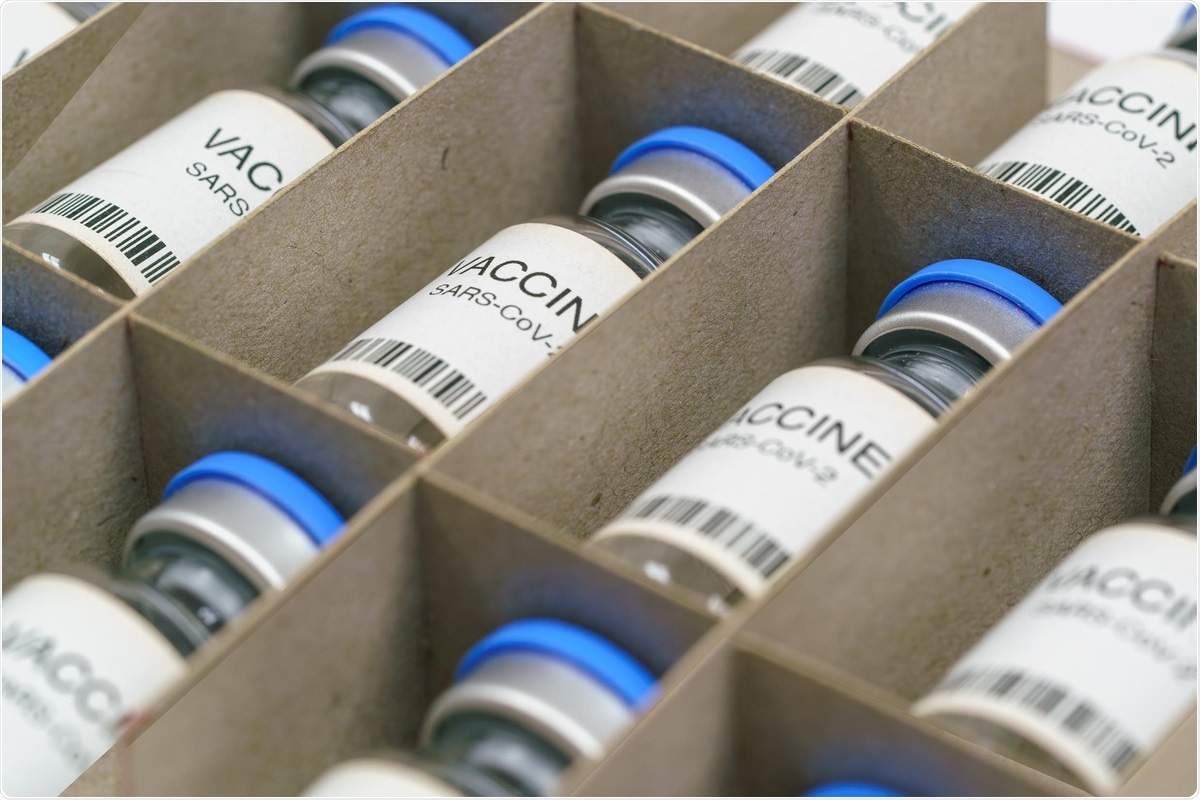How stable are mRNA vaccines under continuous movement?
Researchers tested reconstituted coronavirus disease 2019 (COVID-19) mRNA vaccines under different movement conditions and found that a moderate continuous movement does not damage the mRNA, which may increase the possibility of transporting reconstituted vaccine over a few hundred kilometers.
A type of vaccine approved for use for combating the COVID-19 pandemic is based on mRNA technology. Two types of slightly different vaccines based on this technology have been developed by both Pfizer-BioNTech and Moderna. One difference between the two vaccines is in the lipid nanoparticle carriers that facilitate the mRNA’s entry into cells. This difference allows the Moderna vaccine to be stored at -25 ºC to -15 ºC, while the Pfizer vaccine has to be stored at much lower temperatures of -90 ºC to -60 ºC.

When the Pfizer vaccine is received at hospitals, it has to be reconstituted or mixed to allow injection, and then stored at temperatures between 2 to 8 ºC. At this temperature, their expiration is five days, while at room temperature, their expiration is only two hours.
The vaccine from Moderna can be stored in a refrigerator at 2 to 8 ºC for 30 days, and up to 12 hours before use, it can be stored at 8 to 25ºC. Once a dose has been withdrawn from a vial, the vial should be kept at 2–25 ºC for both vaccines and discarded after six hours.
After reconstitution of both vaccines, it is recommended that the vials should not be transported to prevent unnecessary movement that could disrupt the integrity of the mRNA. This makes it a major limitation in the widespread use of these vaccines for combating the pandemic.
Stability under movement
In a study published recently in Clinical Microbiology and Infection, researchers in Spain explored the integrity of the vaccines under different types of movements, which may help provide information useful for transportation of the vaccines.
Using the Hospital del Mar in Barcelona, Spain, as a reference hospital and its pharmacy as the vaccine distributor, the team used vials of vaccines that were returned to the pharmacy for several reasons such as beyond expiry time or vials falling to the ground.
The team subjected the reconstituted vaccines to different movement conditions for 180 minutes at room temperature. One group of both vaccines was swung in a shaker for the entire time, mimicking transport on poor roads. Another group was subjected to intermittent vortex action (a rigorous shaking that has been reported to damage RNA integrity). A third set was not subjected to any movement and served as the control.
For the swing shaker, the team found negligible mRNA degradation compared to fresh samples. However, samples exposed to the vortex treatment showed significant mRNA degradation.
This suggests continuous movement at room temperature, simulating road transport for about three hours does not damage the mRNA quality. This could translate to about 180 to 300 km transport in European or North American road conditions. This could provide reconstituted vaccines to places that do not have the facility to reconstitute the vaccine. However, after the great shaking in the vortex, there was moderate damage to the mRNA, mainly with the Moderna vaccine.
The stability of Pfizer-BioNTech and Moderna reconstituted vaccines after continuous movement at room temperature may improve the efficiency in the administration of the vaccines, which may lead to shorter and more homogeneous vaccination in cities and rural areas,” write the study authors.
- Grau, S. et al. (2021) Reconstituted mRNA Covid-19 vaccines may maintain stability after continuous movement. Clinical Microbiology and Infection. https://doi.org/10.1016/j.cmi.2021.06.007, https://www.clinicalmicrobiologyandinfection.com/article/S1198-743X(21)00324-4/fulltext.
Posted in: Medical Science News | Medical Research News | Disease/Infection News
Tags: Coronavirus, Coronavirus Disease COVID-19, Hospital, Microbiology, Nanoparticle, Pandemic, Pharmacy, RNA, Vaccine

Written by
Lakshmi Supriya
Lakshmi Supriya got her BSc in Industrial Chemistry from IIT Kharagpur (India) and a Ph.D. in Polymer Science and Engineering from Virginia Tech (USA).
Source: Read Full Article



